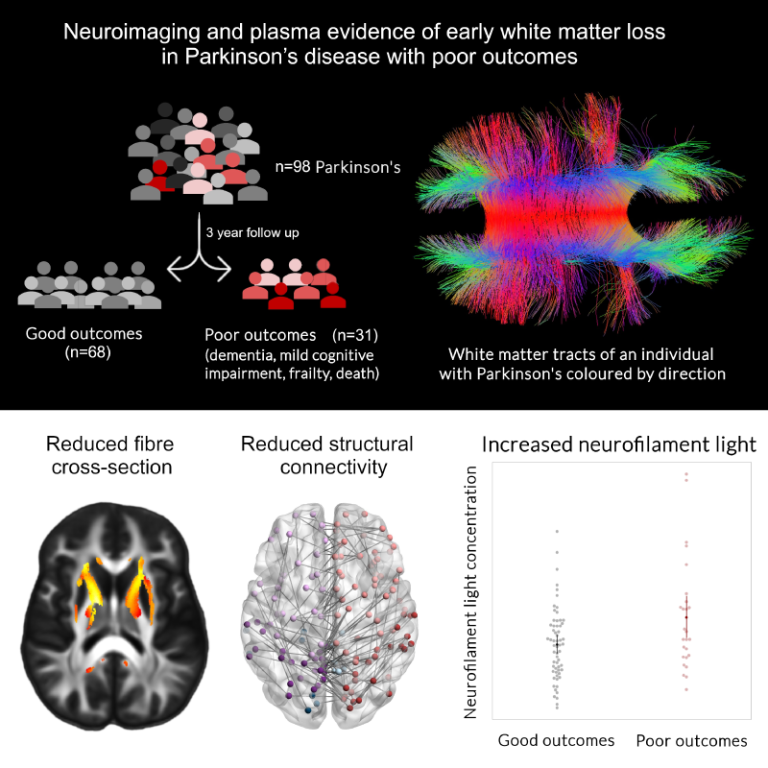Changes in brain wiring predict course of Parkinson's disease
22 April 2024
Techniques that look at brain wiring could better predict poor outcomes in Parkinson's disease, according to a new study led by Dr Angeliki Zarkali (UCL Queen Square Institute of Neurology).

Parkinson's disease is the second most common neurodegenerative disorder after dementia. Around 50% of affected people experience worsening symptoms within 10 years from diagnosis. However, predicting who will develop progressive symptoms, and how fast, is very difficult.
The study, published in Brain Communications, shows that techniques looking at brain wiring could be much more sensitive than other measures in predicting poor outcomes in Parkinson's. This finding could help identify those who would benefit most from treatments.
The researchers used a variety of neuroimaging techniques and plasma blood biomarkers to access 98 people with Parkinson's disease over three years.
They found that patients with Parkinson’s whose symptoms worsen show changes in brain wiring, both on brain scans and in the biomarker blood tests. In contrast, there were no changes in brain thickness or volume to indicate cell loss. There were also no changes in the functional connectivity of the brain.
Dr Zarkali said:
“These results help us understand why some people progress to poor outcomes in Parkinson’s disease. They also provide further evidence of the key role white matter changes play in cognitive impairment in Parkinson's. As new targeted treatments for neurodegenerative diseases are emerging, these measures could be useful when selecting people who would benefit most from treatments.”

Related
- Read in the paper in Brain Communications
- Dr Angeliki Zarkali’s academic profile
- UCL Queen Square Institute of Neurology
Photo by Anna Shvets on Pexels
 Close
Close

